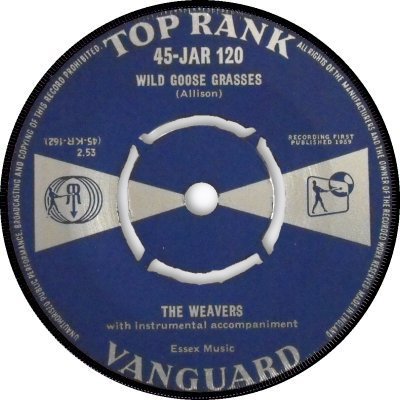
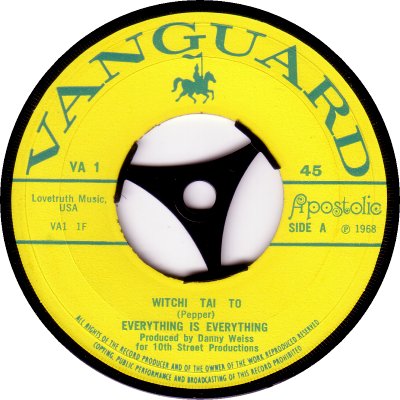
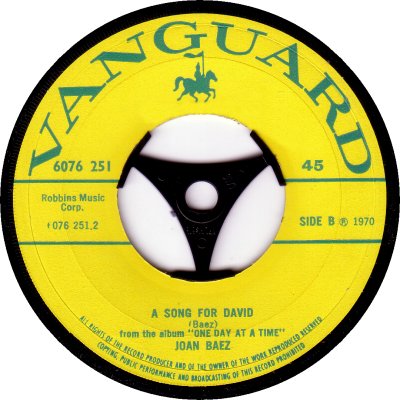
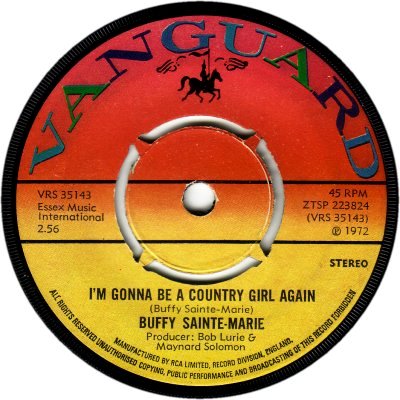
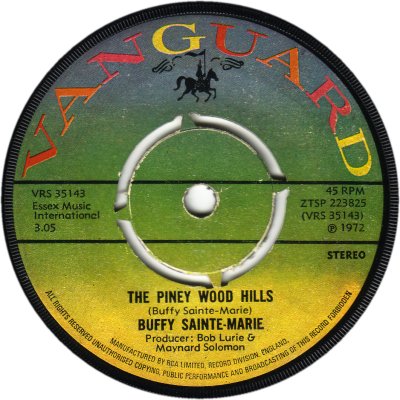
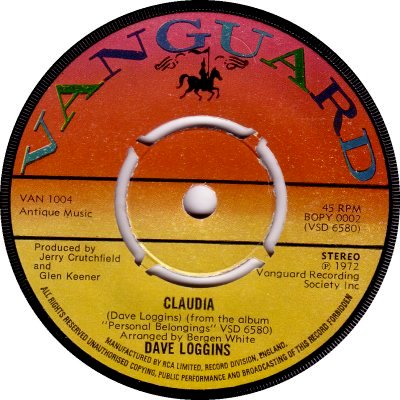
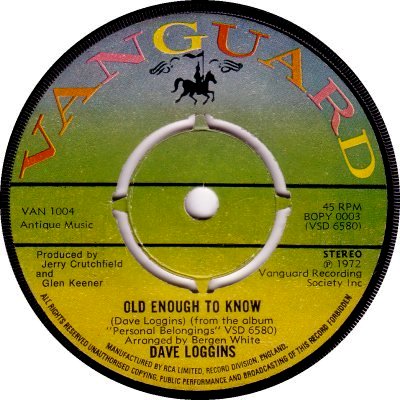
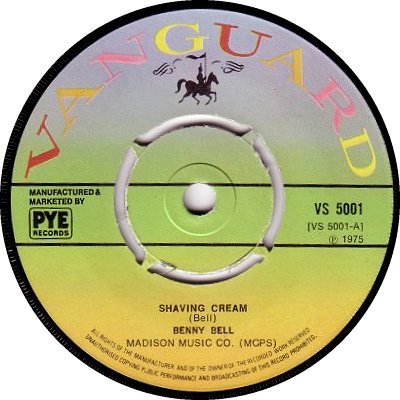
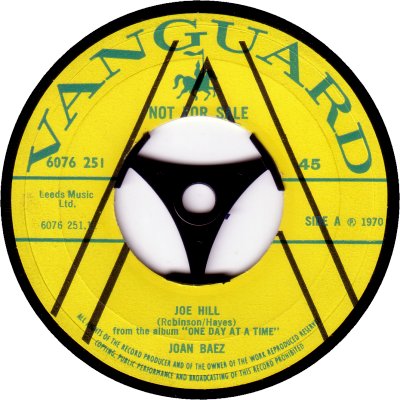
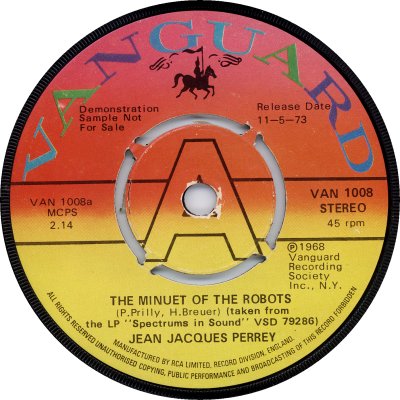
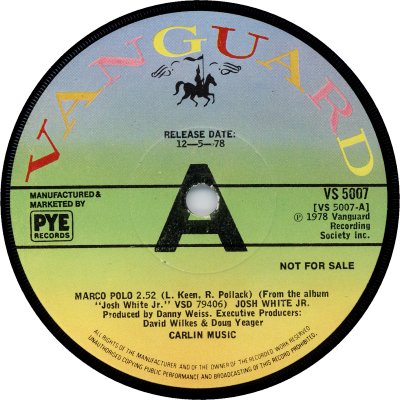
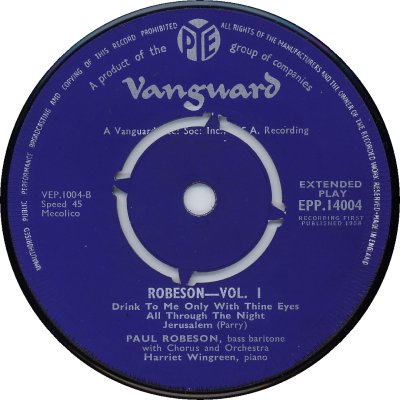
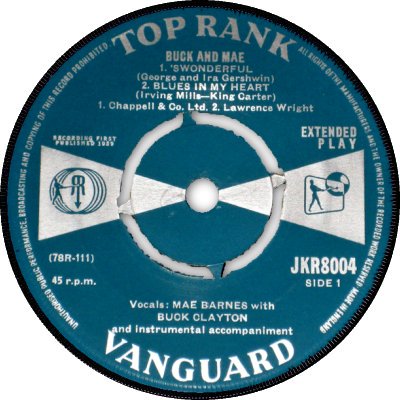
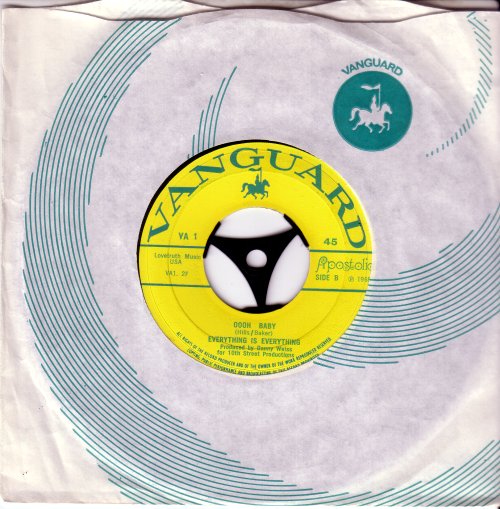
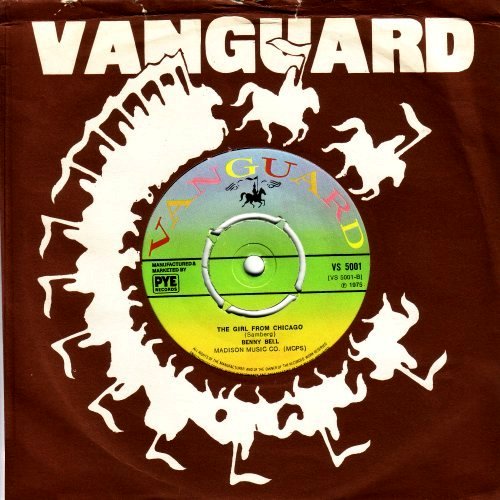
American. According to a twenty-five-years' retrospective feature in 'Billboard' of the 19th of November 1966, it was in the early '50s when brothers Seymour and Maynard Solomon launched their first couple of labels dedicated to Classical music. 'The Bach Guild' came first, in the summer of 1950, and Vanguard followed a few months after, initially as an outlet for material which seemed out of place on a label dedicated to Bach - pieces by the likes of Mahler, for example. In 1955 a third label, Demonstration, was added to the stable, its purpose being to feature more well-known items; it was renamed 'Everyman Classics' in 1964 ('BB', 15th May 1965). A fourth Classical label, Cardinal, joined the line-up towards the end of 1967. Its albums sold at an intermediate price and were in stereo ('BB', 2nd December 1967).
During the course of the '50s and early '60s Vanguard expanded its range to include Jazz, Blues and Folk, the only criterion being that the music had to be something that the brothers liked and understood. 'BB' of the 6th of July 1959 noted that the company had long been known as a Classical / specialist independent but that it had recently moved into the Folk field 'with considerable success' thanks in part to four sets by The Weavers. With the likes of that group, Odetta and later Joan Baez, Buffy Sainte-Marie, Country Joe and Doc Watson on board Vanguard went on to become a front-runner in the American Folk revival. A later 'BB' retrospective, from the 2nd of August 2002, observed that the company swam against the political tide in that decade, releasing records by The Weavers and Paul Robeson during a period when both were under heavy fire from McCarthyites.
Vanguard was very much an album-orientated concern during the '50s and '60s, and its singles successes were rare: 'BB' of the 19th of January 1961 remarked that 'Walk Right In' by The Rooftop Singers had given Vanguard its first hit 'in many moons'. The '60s and '70s saw the company's musical boundaries shifting further to embrace Rock, Electronic music, and in 1968 a collaboration with John Townley's 'Tenth Street Production Company' led to the formation of the Vanguard Apostolic label, which had Jazz-Rock, Blues and Avant Garde leanings and which lasted until 1971. Towards the end of the '70s Vanguard even embraced Disco, but its main concern was always with Classical music. 'BB' of the 15th of May 1965 estimated that despite the company's status as a leading Folk label some three-quarters of its catalogue was Classical, and the 'Billboard' retrospective of the following year said that at that time its sales were divided equally between 'Folk-Pop' and Classical. Whatever genre they were dealing with, the recording quality of their products was always important to the Solomons. They showed an early interest in Quadrophonic sound: 'BB' of the 14th of August 1971 reported that, after pioneering quad tapes a couple of years earlier, Vanguard had released its first batch of quad LPs. For better or worse, however, the format failed to catch on. Seymour Solomon eventually sold the company to the Welk Record Group, of California, in 1986. That turned out not to be the end of his involvement with the brand, as he bought the Classical Music division back in 1990 for sentimental reasons and started to re-release its albums under the Vanguard Classics banner.
In Britain, Vanguard's records were handled by Pye from 1956 to 1958. There were few 7" releases during this period and they were all EPs; they had a blue label which bore the company's name (12). From 1959 into 1960 Vanguard material was issued by Top Rank on a Top Rank / Vanguard label. Again the 7" records were mostly EPs (13) but there was one single among them (1). Some EPs appeared in the Top Rank International / Vanguard label, while the labels of Classical EPs were red. EMI took over Top Rank in the summer of 1960 when the latter company hit financial problems, but the rights to release further Vanguard product may not have been included in the deal ('BB', 15th August). A new outlet, and one which proved to be much longer lasting, was found in 1962. 'BB' of the 12th of January broke the news that Vanguard had signed a licensing deal (its first, according to the article) with Philips. Its entire back catalogue was available to the licensee and selected items would be released on the Philips and Fontana labels, with old tracks being issued on low-priced LPs.
Records sourced from Vanguard duly began to appear, mainly on Fontana. This time around there wasn't a mention of Vanguard on the labels, though the LPs and EPs carried a credit on their sleeves. Given Vanguard's relative lack of involvement in the 7" record markets it's not surprising that it supplied Fontana with only a handful of hit singles. The Rooftop Singers repeated their American success and reached a respectable No.10 position early in 1962 with 'Walk Right In' b/w 'Cool Water' (TF-271700; 1/63), but the only other Vanguard artist to register was Joan Baez. She managed five Chart entries during 1965-66, but only 'There But For Fortune' b/w 'Plaisir D'Amour' TF-587; 6/65) made it into the Top Ten, peaking at No.8. The arrangement whereby Vanguard productions came out on one or the other of Philips's main labels continued into 1968. In the spring of that year 'Record Retailer' of the 10th of April was finally able to say that selected Vanguard LPs were to be issued on the company's own label the following month. For some reason singles and the other LPs weren't given the same treatment until February the following year ('RR', 29th January 1969).
The deal with Philips lasted until the 6th of March 1971, which meant that as far as singles are concerned the Philips version of the Vanguard label lasted for just over a year. 'RR' of the 24th of April remarked on the ending of the deal and said that Philips had a six-month sell-off period for old stock. It added that as far as new releases went Buffy Sainte-Marie's 'Soldier Blue' b/w 'Moratorium' had been licensed to RCA as a one-off - it came out as RCA-2081 on the 30th of April. A more comprehensive deal with RCA soon followed. It was supposed to come in the form of a three-year manufacturing / marketing / distribution agreement, starting at the beginning of June ('RR', 12th June 1971) but there seems to have been a delay. 'RR' of the 11th of September gave a new starting date of the 17th of that month, and added that the 'Soldier Blue' LP and single had already been released, on RCA, because of demand inspired by the film. The single went on to enter the Top 10, peaking at No.7.
Vanguard stayed with RCA for nearly three years, fairly uneventful ones. Despite concentrating on albums in the main, it enjoyed a couple of hit singles. Joan Baez's 'The Night They Drove Old Dixie Down' b/w 'When Time Is Stolen' (VRS-35138; 9/71) gave it its best-ever placing, reaching No.6, but 'I'm Gonna Be A Country Girl Again' b/w 'The Piney Wood Hills' (VRS-35143; 1/72) by Buffy Sainte-Marie stalled outside the Top 30, at No.34. Then in the summer of 1974 Vanguard moved to Pye, signing a distribution deal which covered all of its labels: Cardinal, The Bach Guild, Everyman Classics and Historical Anthology Of Music as well as Vanguard itself ('Billboard', 22nd June). The emphasis remained on albums; only four singles were released in the first four years of the deal, and one of those was a reissue. That state of affairs changed in the final quarter of the decade, as Vanguard turned its attention to the Disco market. From 1979 until the spring of 1983, when it ceased to issue records in Britain, its singles output here was mainly in that vein. It scored three times with singles by The Players Association, 'Turn The Music Up' b/w 'Goin' To The Disco' (VS-5011; 3/79) being by far the most successful of the trio - it reached the No.8 spot. In America Vanguard continued to put out Disco singles until 1986, but the ones which appeared in the UK after 1983 were licensed to other labels.
As stated above, Vanguard's 7" records during the Pye years were all EPs, as indeed were the majority during the Top Rank period. The name 'Vanguard' featured quite prominently on their labels, as can be seen from the scans above. After the move to Philips in 1962, some six years passed before Vanguard had its own label again. The first design was much the same as the American one of the time but came in yellow-and-green (2, 3) unlike its multicoloured relative. The singles were housed in a company sleeve (14), and material originating with Vanguard Apostolic had the 'Apostolic' name added (2). At the time of the move to RCA the multicolouring was adopted, the 'A' (4, 6) and 'B' (5, 7) sides having different colour schemes. Pye issues abandoned the different-coloured 'A's and 'B's and stuck with the 'B' side colouring (8); they were however given a company sleeve (15), which had been absent throughout the RCA period. During the Philips years, demonstration copies were marked with a large hollow black 'A' on the appropriate side (9). RCA demos had a much smaller hollow 'A' in the centre (10), while for Pyes the 'A' shrank a little further and solidified (11). All three types had appropriate text added.
As for numbering, Pye Vanguard EPs came in an EPV-14000 series, while Top Rank Vanguards shared series with that company's other EPs and singles. Fontana EPs originating with Vanguard had their own TFE-18000 numbers, but singles were lumped in with Fontana's own. Philips's Vanguard singles were initially numbered in the VA-0s; this changed briefly to the 6076-250s in 1970 when all the Philips and Polydor labels adoped seven-figure numbers. After the move to RCA singles were issued in two separate contemporaneous numerical series. Those with American counterparts had the same VRS-35000 numbers as the American issues, while those which hadn't were numbered in the VAN-1000s. Vanguard's singles in the second Pye era were given VS-5000 catalogue numbers. The discography only covers the late '60s and the '70s.
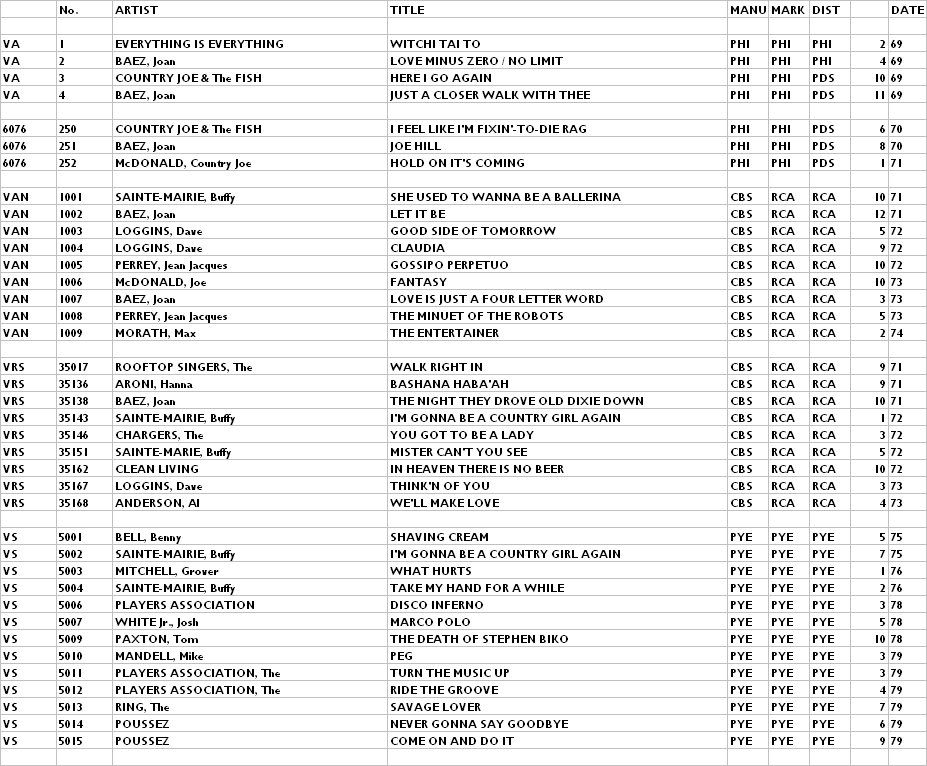


Copyright 2006 Robert Lyons.

